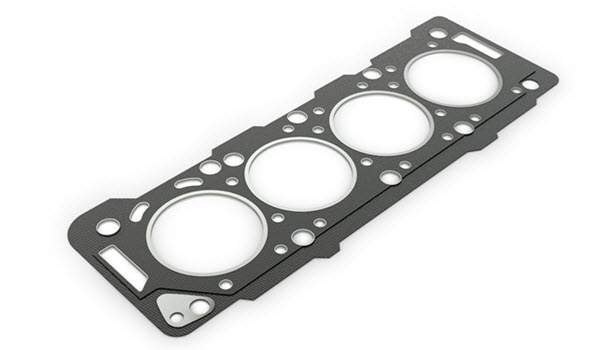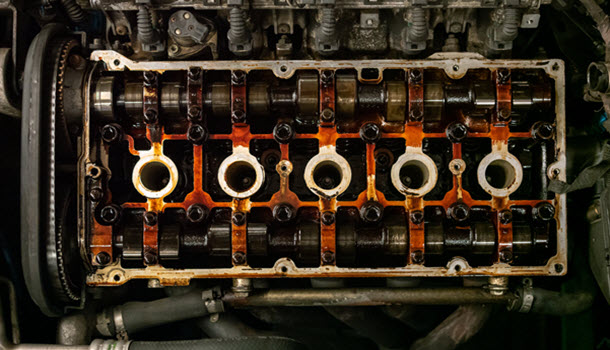Act Now to Prevent an Automatic Transmission Failure in Your Volvo
Posted on | 30 Nov 2023 By Anita Gaal
Volvo’s automatic transmission system is a sophisticated network of components designed to provide a smooth and effortless driving experience. Unlike manual transmissions, which rely on the driver to shift gears by first pressing the clutch pedal, automatic transmissions use a hydraulic torque converter and a complex set of gears to manage gear changes automatically.
This intricate system contributes to Volvo’s renowned reputation for comfort and ease of use. However, when the automatic transmission system fails, it brings with it several consequences that can significantly impact your driving experience. Let us look at ways you can detect an automatic transmission failure in your Volvo and what you can do when this problem occurs.
Recognizing the Signs of Automatic Transmission Failure
Automatic transmission failure often starts with subtle signs that, if detected early, can prevent more extensive damage. Here are some indicators that your transmission may be in distress:
- Loss of Power and Acceleration: One of the immediate consequences of automatic transmission failure is a noticeable loss of power and acceleration. Your Volvo may struggle to reach desired speeds, making it challenging to merge onto highways or overtake other vehicles. This can not only be frustrating but also compromise the safety of your driving experience.
- Unpredictable Shifting: A failing automatic transmission may exhibit unpredictable shifting patterns. You might experience abrupt or delayed gear changes, leading to a jerky and uncomfortable ride. This inconsistency in shifting can make your Volvo less enjoyable to drive, detracting from the smooth and refined experience it is known for.
- Unusual Noises: Another way to spot transmission failure is by paying attention to any unfamiliar noises emanating from your Volvo. Whining, clunking, or grinding sounds, especially during acceleration or deceleration, can be indicative of internal transmission issues.
- Transmission Fluid Leaks: A sudden drop in fluid levels or visible leaks underneath your vehicle may signal a problem. Low fluid levels can lead to overheating and accelerated wear within the transmission.
- Warning Lights on the Dashboard: If the transmission is experiencing issues, it may trigger a warning light on the dashboard. Never ignore these warnings; they are your vehicle’s way of communicating a potential problem.
Strategies for Dealing With Automatic Transmission Failure
Regular Maintenance Checks
Prevention is often the best cure. Regular maintenance checks, including inspections of the transmission fluid level and condition, can help catch potential issues early. Follow the manufacturer’s recommended service intervals to keep your Volvo’s transmission in top condition.
Prompt Attention to Warning Signs
Don’t ignore the early warning signs mentioned earlier. If you notice any abnormalities in your Volvo’s transmission performance, such as delayed shifting or unusual noises, schedule a diagnostic check promptly.
Transmission Fluid Flush
Regularly flushing and replacing the transmission fluid at recommended intervals can prevent issues related to low fluid levels and contamination. Fresh, clean fluid helps maintain optimal transmission performance.
Repair or Replacement
Depending on the severity of the transmission failure, the technician may recommend repairs or a complete transmission replacement. In some cases, rebuilding the transmission may be a viable option. The decision will be based on factors such as the extent of damage, cost considerations, and the overall condition of the vehicle.
Why Professional Help Matters for Your Volvo
When it comes to addressing Volvo’s automatic transmission failure, the importance of seeking professional help cannot be overstated. Trained technicians with expertise in Volvo vehicles can provide accurate diagnoses, recommend appropriate solutions, and execute repairs with precision. Trusting your Volvo to professionals ensures that the intricate transmission system is handled with the care and expertise it deserves.

Choose Euro Automotive for Your Volvo’s Transmission Needs
At Euro Automotive, we understand the intricate engineering of Volvo transmission. Our team of skilled technicians is equipped with the knowledge and expertise to diagnose and address any transmission issues with precision. We prioritize transparency, ensuring that our clients are informed at every step of the repair process. Our garage is conveniently located to serve as a trusted partner for Volvo owners seeking reliable transmission services in areas like Dallas, Garland, Arlington, and Fort Worth, TX. Whatever repair, maintenance, or assistance that you need can be provided by our trained technician. Book an appointment with us now.















